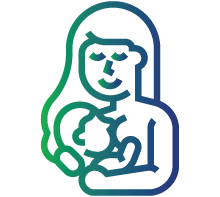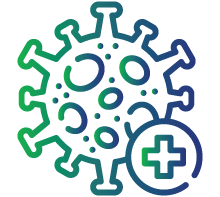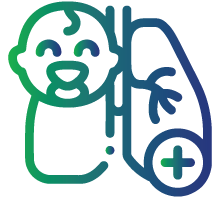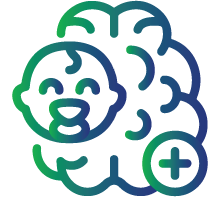
Newborn Screening (NBS) 7 Parameters Test
Newborn Screening (NBS) 7 Parameters Test
Newborn Screening (NBS) 7 Parameters Test is a vital screening panel conducted shortly after birth to detect metabolic, hormonal, and genetic disorders early. Early diagnosis through NBS allows for timely intervention, reducing complications and improving long-term outcomes. The test measures seven critical parameters linked to various congenital conditions.
Newborn screening is a public health program designed to identify potentially serious conditions in infants before symptoms appear. Most of these conditions are inherited metabolic disorders, where the body cannot properly break down certain substances like amino acids, sugars, or lipids. Without early detection and treatment, these disorders can lead to developmental delays, severe health complications, and even life-threatening conditions.
The importance of newborn screening cannot be overstated. Many of the disorders tested in the NBS panel do not show immediate symptoms at birth, making early testing crucial for effective disease management. Advances in genetic and biochemical testing have significantly improved the ability to diagnose and treat these conditions promptly, ensuring a healthier future for affected infants.
What is the NBS 7 Parameters Test Used For?
This test is used to:
- Identify metabolic and hormonal disorders that require early intervention.
- Detect enzyme deficiencies that may lead to severe health conditions.
- Guide timely treatment decisions to prevent complications.
- Ensure newborn health and development by addressing potential genetic issues.
Parameters Included in the NBS 7 Test
The test detects abnormalities in the following seven parameters
17-Hydroxyprogesterone (17OH)
-
Elevated levels may indicate Congenital Adrenal Hyperplasia (CAH), a disorder affecting cortisol and aldosterone production.
Biotinidase (BIOT) Deficiency
-
Detects biotinidase enzyme deficiency, which can lead to neurological and dermatological issues.
Glucose-6-Phosphate Dehydrogenase (G6PD)
-
Identifies G6PD deficiency, a genetic condition that can cause hemolytic anemia.
Immunoreactive Trypsinogen (IRT)
-
Elevated levels suggest Cystic Fibrosis (CF), a condition affecting the lungs and digestive system.
Phenylalanine (PHYL)
-
High levels may indicate Phenylketonuria (PKU), which can lead to intellectual disabilities if untreated.
Galactose (GALAC)
-
Measures galactose levels to detect Galactosemia, a disorder affecting the metabolism of galactose.
Thyroid-Stimulating Hormone (TSH)
-
Screens for Congenital Hypothyroidism (CH), a condition that can lead to developmental delays if untreated.
Symptoms of Disorders Screened in NBS 7 Test
If left undetected, conditions screened by the NBS 7 panel may cause

Failure to thrive and developmental delays

Lethargy, vomiting, and feeding difficulties

Severe infections and metabolic crises

Respiratory problems and jaundice

Intellectual disabilities and neurological symptoms
Preparation for the Test
No special preparation is required. A heel prick blood sample is taken from the newborn within 24-48 hours after birth. The sample is analyzed for metabolic and genetic markers.
Interpretation of Results
|
Test |
Normal Range |
Elevated/Low Results |
Possible Condition |
|
17-Hydroxyprogesterone (17OH) |
<30 ng/mL |
↑ Elevated |
Congenital Adrenal Hyperplasia (CAH) |
|
Biotinidase (BIOT) Deficiency |
≥4 U/L (Normal Activity) |
↓ Low or Absent Activity |
Biotinidase Deficiency |
|
Glucose-6-Phosphate Dehydrogenase (G6PD) |
≥6 U/g Hb |
↓ Low |
G6PD Deficiency |
|
Immunoreactive Trypsinogen (IRT) |
<60 ng/mL |
↑ Elevated |
Cystic Fibrosis (CF) |
|
Phenylalanine (PHYL) |
<2 mg/dL |
↑ Elevated |
Phenylketonuria (PKU) |
|
Galactose (GALAC) |
<10 mg/dL |
↑ Elevated |
Galactosemia |
|
Thyroid-Stimulating Hormone (TSH) |
<10 µIU/mL |
↑ Elevated |
Congenital Hypothyroidism (CH) |
FAQs
Why is newborn screening important?
Newborn screening detects serious but treatable disorders early, preventing complications and ensuring proper treatment.
How is the test performed?
A small blood sample is collected from the baby's heel and analyzed for specific metabolic, hormonal, and genetic markers.
What happens if my baby has an abnormal result?
Further confirmatory tests and specialist evaluations will be conducted to diagnose the condition and initiate treatment.
Can these conditions be treated?
Yes, early treatment with medications, dietary changes, or hormone therapy can effectively manage most conditions detected by the NBS test.
Is newborn screening mandatory?
In many countries, newborn screening is a standard practice, but requirements may vary by region.

